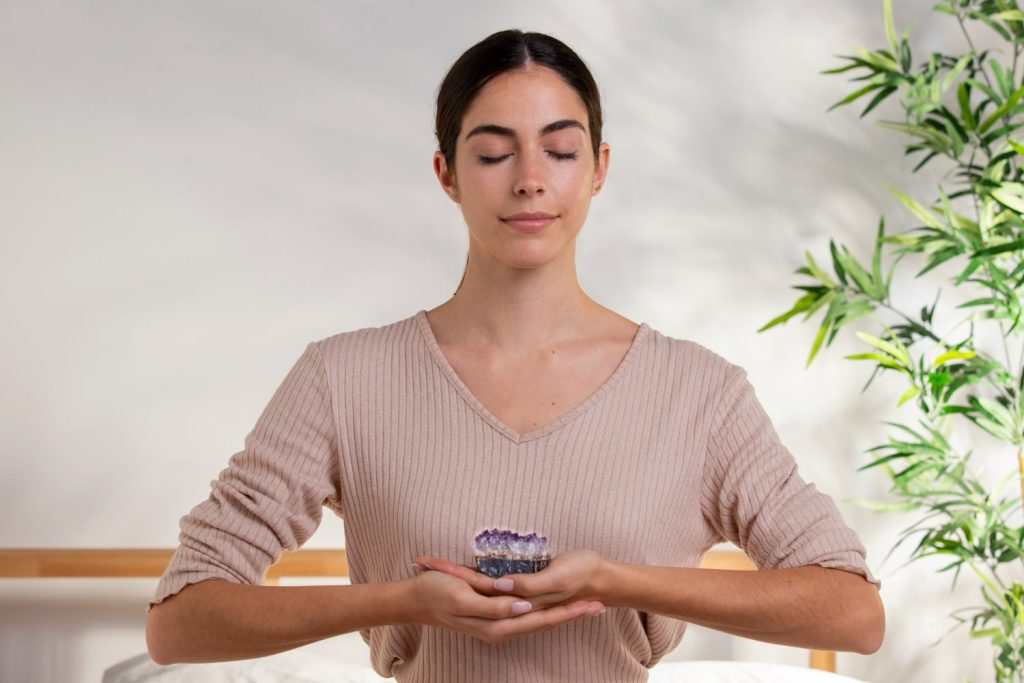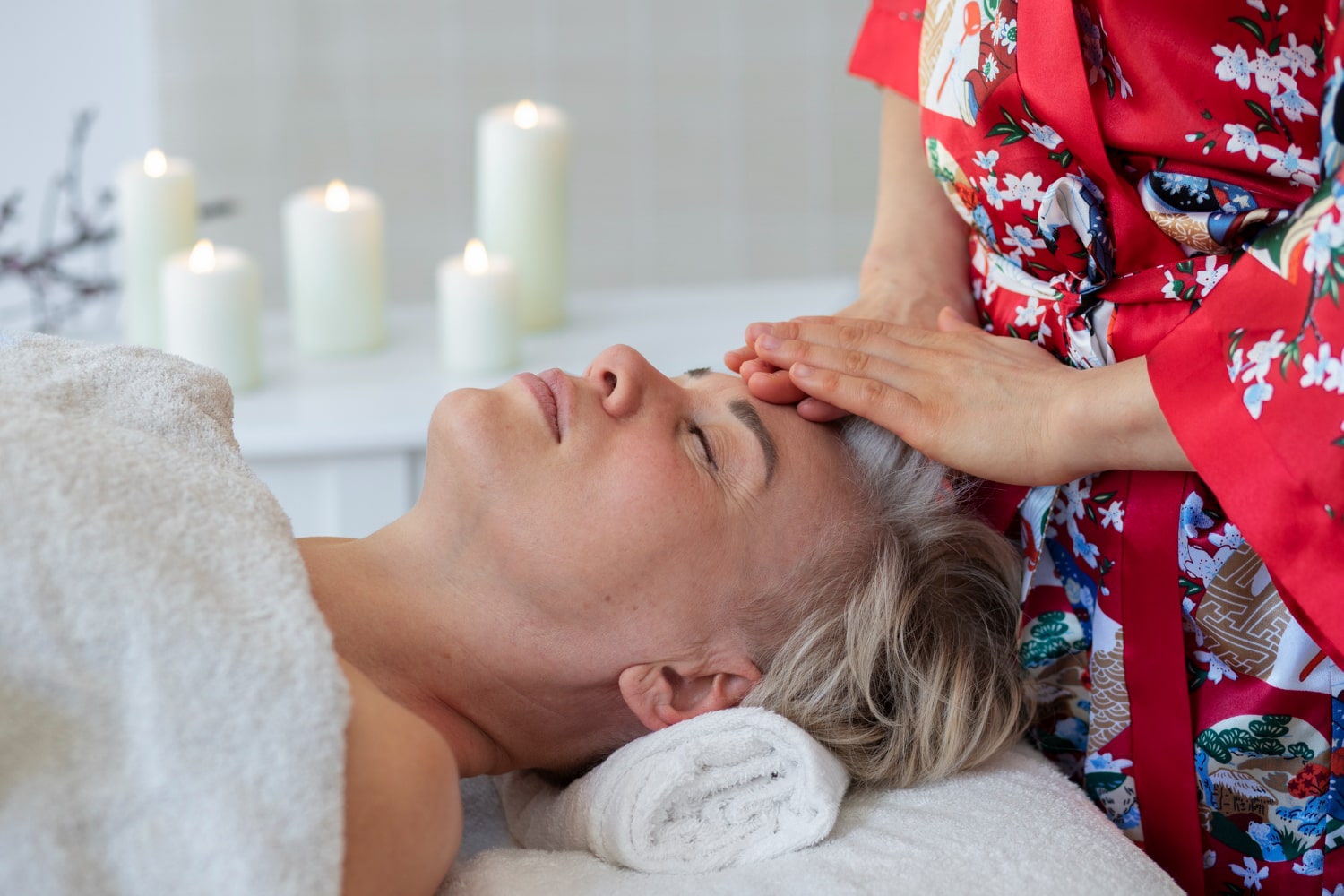When we hear the word Reiki, we imagine a peaceful room, soft music, and a feeling of release. However, like any healing practice, nothing is absolute—and yes, even Reiki can come with certain “side effects.” In this article, we’ll take a closer look at whether there’s anything to worry about, what possible reactions may occur, and how to handle them—not with fear, but with awareness and safety.
Are There Side Effects in Reiki?
Generally, Reiki is considered a safe, non-invasive method with no significant risks. Still, during or after a session, the body and spirit may experience some mild reactions, such as:
- Fatigue or drowsiness: This happens as the body goes through an “energetic cleansing.”
- Headaches, stomach aches, or muscle pain: These symptoms are sometimes normal and usually temporary.
- Emotional sensitivity: Tears or intense emotional outbursts may surface spontaneously because the body is relaxing. This reaction is more common in people dealing with anxiety or PTSD.
- Sensation of heat, tingling, or magnetism during the session: This is due to the energetic clearing process taking place.
In very rare cases, people may report stronger emotional “releases” or mild psychosomatic symptoms.
How to Handle These “Side Effects”
If you notice these kinds of reactions, the best approach is to simply support your body as it goes through them. Depending on the reaction, here’s what you can do:
- Fatigue or drowsiness: Rest, stay calm, and keep your body hydrated.
- Headache or stomach ache: Drink a mild herbal tea, take a short walk, or lie down for a bit.
- Emotional intensity or anxiety: Talk openly with your practitioner, try meditation, or practice deep breathing. If you experience PTSD or chronic anxiety, it’s also wise to seek psychological support from a licensed therapist.
- Other mild reactions: Discuss them with your Reiki practitioner. Usually, they disappear as your body becomes more accustomed to the energy flow.
The most important thing: Trust your practitioner. If you’re not sure about their training, it’s best not to proceed. Make sure they are certified—ideally in the Usui tradition or another recognized Reiki level.
So, What Is Reiki?
We’ve talked about side effects, but let’s not forget the basics: What is Reiki?
The term comes from the Japanese words Rei (meaning “spiritual”) and Ki (meaning “life energy”). It refers to the pure flow of universal energy that, through gentle touch, helps the body, mind, and spirit return to balance. It’s not linked to any religion, nor does it promise “miracle cures.” Instead, it’s one of the most well-known energy healing practices because of the peace and relaxation it offers.
Reiki activates blockages in the energy centers (chakras), allowing life energy to flow freely again. That’s the foundation of its “cleansing” action.
What Happens During a Reiki Session?
The process is simple, calm, and deeply meaningful:
Preparation
You lie down fully clothed on a massage table in a quiet and protected space. The lighting is soft, and the atmosphere is relaxing, helping you let go of tension and mental noise.
Hand Positions
The practitioner gently places their hands above or lightly on different parts of your body—such as your head, abdomen, or back. They stay in each position for a few minutes, “tuning in” to your energy and supporting its smoother flow.
Session Duration
A full session typically lasts between 30 to 60 minutes. There’s usually a short time before and after the session for discussion, if you wish, so you can feel more comfortable and approach the experience with greater awareness.
Completion of the Session
The practitioner ends the session by gently “closing” the flow of energy and discussing your experience with you. They may suggest you drink water or rest quietly for a little while to help your body process the energy work.
What Are the Benefits of Reiki?
Reiki can offer a wide range of benefits for both the body and the mind, including:
- Reduced stress and anxiety, creating an immediate sense of calm and tranquility
- Relief from physical discomfort, such as headaches, muscle tension, stomach pain, or back pain
- Support during recovery from surgeries or medical treatments, improving sleep and breathing
- Emotional balance, helping you navigate feelings more smoothly
- Boosted immune system and energetic vitality
A Gentle Yet Powerful Wellness Tool
Reiki isn’t a miracle cure or a replacement for medical treatment. However, it’s a gentle practice that supports your body’s natural healing processes. For some, this may trigger temporary emotional or physical symptoms—like tiredness or sensitivity—as the body and mind adjust.
That’s not something to fear. With the right awareness and guidance, Reiki can be a safe, supportive tool in your self-care routine. If you have a history of anxiety, PTSD, or emotional vulnerability, working with an experienced practitioner alongside professional psychological support can help you benefit from Reiki in a respectful and caring way.
If your body or soul feels like it needs a break, a Reiki session might be just what you need. Give yourself the chance to unwind, reset, and reconnect with your inner strength—naturally and effortlessly.
Book your session today and discover what can shift… when you let the energy work for you.

